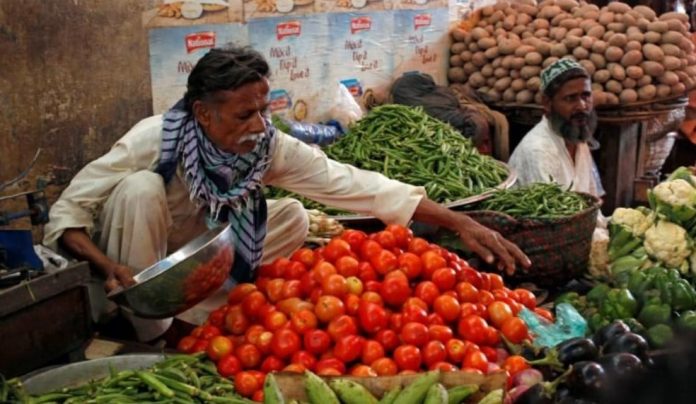Price inflation may remain elevated amid rising food and energy costs.
The local currency has depreciated by 20 percent against the dollar this year.
Pakistan took the crown of Asia’s fastest inflation from Sri Lanka as a weak currency and rising food and energy costs pushed prices to record highs in April.
Consumer prices rose 36.4 percent in April from a year earlier, the most since 1964, according to data released Tuesday by the Bureau of Statistics. That compares with a 37.2% increase in a Bloomberg survey and a median estimate of a 35.4% increase in March.
Pakistan’s inflation rate in Sri Lanka slowed to 35.3 percent in April and is starting to show signs of recovery from the economic crisis, data showed. The Pakistani rupee is one of the worst-performing currencies globally in 2023, depreciating by 20 percent against the dollar, and imported goods have become more expensive.
Data showed that transport prices rose by 56.8 percent in April, while food inflation rose by 48.1 percent from a year earlier. The prices of clothes and shoes increased by 21.6 percent and the prices of houses, water, and electricity by 16.9 percent.
Pakistan’s inflation is expected to rise further after authorities hiked taxes and fuel prices to meet IMF conditions for revitalizing a $6.5 billion loan program.
Bailout funds will be critical to help Pakistan pay for essential imports like food and fuel and avoid default in the coming months. However, the IMF is seeking financing assurances before resuming assistance.




